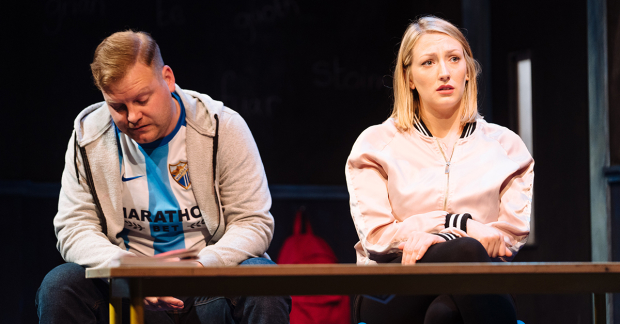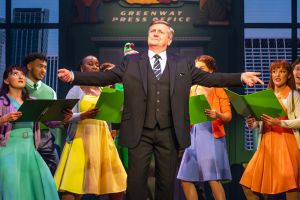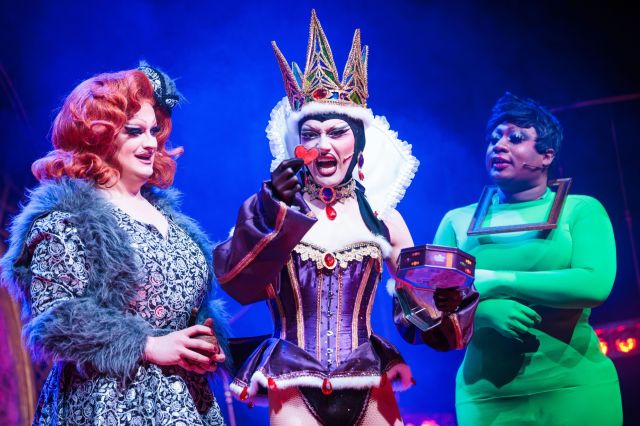Review: Class (Bush Theatre)
Iseult Golden and David Horan’s play explores failing education systems

© Helen Murray
Iseult Golden and David Horan's charming play Class, offers no easy answers in its exploration of failing education systems, prejudice and parent-teacher relationships.
The recently separated Brian (Stephen Jones) and Donna's (Sarah Morris) nine year-old son Jayden is struggling at school, and the softly spoken, smartly dressed Mr McAfferty (Will O'Connell) has called them in to talk about their child's literacy skills. But what begins as a simple after-school meeting soon descends into chaos, with the classroom becoming a microcosm of class divisions and cultural tension.
Brian's anger issues come bubbling to the surface, as do Donna's understandable fear that her son is "going to go through the rest of his life thinking something is wrong with him" if they send him to an educational psychologist like McAfferty suggests. Donna knows what it's like to be let down by the education system, where prejudice is rife and one mistake means a child in a difficult domestic situation can be excluded and renounced by their school. Jones and Morris ably switch between playing the parents, to also performing Jayden and his classmate Kaylie, in short yet tender-hearted scenes that show the story from the children's points of view.
We never move from the classroom setting, which serves to keep all the characters in an ostensibly accessible, yet volatile environment. Mr McAfferty's underlying frustrations with parents who just don't see things his way becomes increasingly clear. He goes from calling Jayden's hinted-at dyslexia a mere learning 'difference' to a 'difficulty' to potential 'delinquency', all under the mirage of not wanting Jayden to 'fall behind at school'. Honourable intentions, of course, but he ironically fails to realise the impact of his language on Brian and Donna, and just how much he has been jaded by the education system.
On Maree Kearns' set, a space filled with chairs far too small for grown-ups, and blackboards for walls, Donna and Brian revert back into their childlike state, providing ample opportunities for comedy. Donna, for example, raises her hand to speak to Mr McAfferty, and is unable to address him by his first name. It's a relatable, humorous moment which underlines the ways we are socialised to interact with authority figures.
Everything in this play feels fully fleshed out – from the characters to the questions it raises. How do you do the best thing as an educator when school policy often runs contrary to intuition? How do you do make the right decisions for your child when your home life is fractured and, in Brian's case, you must spend more time working to pay the bills than actually seeing your child? Golden and Horan provide no easy answers.
All three characters apportion blame to almost anyone but themselves, and perhaps the blame is to be shared. Society at large is struggling, it seems – we get the sense that this is a deprived area in Dublin and that no one in the play will leave unscathed. Class is all about these grey areas surrounding good intentions, and that's what makes it shine.


















